Large-diameter
spiral steel pipeline anticorrosion refers to the chemical or electrochemical reaction of the pipeline in the use and transportation of large-diameter spiral steel pipelines due to the influence of the use environment and the conveying medium. To effectively prevent or control the corrosion of large-diameter spiral steel pipes, scientists are seeking a new, higher, and more effective method.
New anti-corrosion technologies for large-diameter spiral steel pipes continue to emerge, which can be roughly divided into the following types:
Main types of anti-corrosion coatings for large-diameter spiral steel pipes:
Large diameter spiral steel tube
1. Grease coating - used in atmospheric environments with low corrosion resistance requirements. Grease paint is a kind of paint with drying oil as the main film-forming substance. It is characterized by easy production, good brushability, good wettability to the surface, low price, and flexible paint film; but the paint film dries slowly, is soft, and has poor mechanical properties, acid and alkali resistance, water resistance, and water resistance. Organic solvents are poor. Drying oil is often combined with antirust pigments to form antirust paint, which is used in atmospheric environments with low corrosion resistance requirements.
2. National lacquer: Raw lacquer, also known as raw lacquer and lacquer, is a special product in my country. Raw lacquer is a milky white viscous liquid that flows out from the bark of the growing lacquer tree. It is filtered through a fine cloth to remove impurities. After it is applied on the surface of the object, the color will quickly change from white to red, and from red to purple, and it will become a hard and bright black paint film after a long time. Urushiol is the main component of raw lacquer, with a content of 30% to 70%. Generally speaking, the higher the urushiol content, the better the quality of raw lacquer. National paint has strong adhesion, tough paint film, and good gloss. It is resistant to soil corrosion, water resistance, and oil resistance. The disadvantage is that it is toxic and easy to causes skin allergies. In addition, it is not resistant to strong oxidants and has poor alkali resistance. Many modified raw lacquer coatings overcome the above-mentioned shortcomings to varying degrees.
3. Phenolic resin coatings: mainly alcohol-soluble phenolic resins, modified phenolic resins, pure phenolic resins, etc. Alcohol-soluble phenolic resin coatings have good corrosion resistance, but their construction is inconvenient, their flexibility and adhesion are not very good, and their application is limited. Therefore, it is often necessary to modify the phenolic resin. For example, rosin-modified phenolic resin and tung oil are refined, various pigments are added, and various enamel paints can be obtained after grinding. The paint film is tough and cheap and is widely used in the coating of furniture, doors, and windows. Pure phenolic resin paint has strong adhesion, water resistance, humidity resistance, corrosion resistance, and good weather resistance.
4. Epoxy resin coating: Epoxy coating has good adhesion, and excellent adhesion to metal, concrete, wood, glass, etc.; it is resistant to alkali, oil, and water, and has excellent electrical insulation performance. But the anti-aging property is poor. Epoxy anticorrosion coatings usually consist of two components: epoxy resin and a curing agent. The nature of the curing agent also affects the performance of the paint film. Commonly used curing agents are ① fatty amine and its modified products. The characteristic is that it can be cured at room temperature, and the unmodified aliphatic amine is more toxic. ② Aromatic amines and their modified products. It is characterized by slow reaction, often needs to be heated and cured, and has weak toxicity. ③ polyamide resin. It is characterized by good weather resistance, low toxicity, good elasticity, and slightly poor corrosion resistance. ④Phenolic resin, urea-formaldehyde resin, and other synthetic resins. These resins and epoxy resins are used together to form films after high-temperature baking, and the paint films have outstanding corrosion resistance, good mechanical properties, and decorative properties. Epoxy ester resin coating is a one-component coating system that uses epoxy ester resin as a film former. Epoxy ester resin is formed by compounding epoxy resin and vegetable oil fatty acid ester. Compared with general epoxy coatings, this coating has lower cost and poor alkali resistance. It is often used as a variety of metal primers and anti-corrosion paints for outdoor equipment in chemical plants.
5. Polyurethane coatings: Polyurethane resins used for anti-corrosion coatings often contain two components: isocyanate groups-NCO and hydroxyl groups. When used, mix the two components and react to cure to form polyurethane (polyurethane). Features of polyurethane coatings: ① Good physical and mechanical properties. The paint film is hard, flexible, bright, plump, wear-resistant, and has strong adhesion. ②Excellent corrosion resistance. Resistant to oils, acids, chemicals, and industrial fumes. Alkali resistance is slightly lower than epoxy coatings. ③Aging resistance is better than epoxy coating. Often used as a top coat and also as a primer. ④Polyurethane resin can be miscible with various resins, and the formula can be adjusted in a wide range to meet various application requirements. ⑤ It can be cured at room temperature or by heating, and it can also be cured at a lower temperature (0°C). ⑥ The storage stability of the polyisocyanate component is poor, and moisture must be isolated to avoid jelly. Polyurethane coatings are expensive but have a long service life.
6. Polyethylene and polypropylene resin coatings: Polyethylene resin anti-corrosion coatings are coatings made of resins made of monomers as film-forming substances. Among them, polyethylene coatings have been mass-produced and applied. Polyethylene pipes have strong anti-corrosion and sealing properties, high mechanical strength, strong water resistance, stable quality, convenient construction, good applicability, and do not pollute the environment. PE has a low water absorption rate (less than 0.01%), high epoxy strength, low water absorption of PE and good softness of hot melt adhesive, etc., and has high anti-corrosion reliability. The disadvantage is: compared with the cost of other filling materials, costly. The raw material of the coating is rich in sources and has been widely used in corrosion.
7. Furan resin coatings: Furan resin coatings are resistant to various non-oxidizing inorganic acids, electrolyte solutions, and various organic solvents. The alkali resistance is also outstanding, but the oxidation resistance is not good. Furan resin series anti-corrosion coatings include furfuryl alcohol resin coatings, furfural acetone formaldehyde resin coatings and modified furan resin coatings, etc.
8. Rubber coatings: Rubber anti-corrosion coatings are made of chemically or mechanically processed natural rubber or synthetic rubber as film-forming substances, plus solvents, fillers, pigments, catalysts, etc. (1) Chlorinated rubber coatings. The coating has good water resistance, and resistance to salt water and salt spray; it has certain acid and alkali corrosion resistance and can withstand 10% HCl, H2SO4, HNO3, different concentrations of NaOH, and wet Cl2 below 50 °C. But it is not resistant to solvents and has poor aging resistance and heat resistance. The coating is widely used in ships, harbors, the chemical industry, and other occasions. ⑵ Neoprene coating. The coating is resistant to ozone, chemicals, alkali resistance, good weather resistance; oil resistance, and heat resistance, and can be made into a peelable coating. The disadvantage is that the storage stability is poor; the coating is easy to change color, and it is not easy to make white or light-colored paint. (3) Chlorosulfonated polyethylene rubber coating. It is made by reacting polyethylene resin with chlorine and sulfur dioxide (or chlorosulfonic acid). The coating has excellent ozone resistance, remarkable weather resistance, low water absorption, oil resistance, and temperature resistance. It can be used above 120°C and does not become brittle at -50°C.
9. Asphalt coating: Asphalt is an important anti-corrosion coating. Especially coal tar pitch, coal tar pitch coating is cheap, and has the following advantages: ① water resistance, its water absorption rate is only 0.1% ~ 0.2% after being immersed in water for 10 years; ② resistant to the erosion of some chemical media; Fully de-rusted steel surface still has good wettability; ④ high solid content, the thick film can be obtained; ⑤ low price. Its disadvantage is that it becomes brittle in cold winter and soft in the summer heat, and some components volatilize and escape after exposure to the sun, which will cause cracks in the paint film. These shortcomings can be improved by adding some other resins. For example, the addition of chlorinated rubber can improve the dryness of asphalt coatings and improve the shortcomings of winter crispness and summer softness; epoxy asphalt coatings made by adding epoxy resin can have both the advantages of asphalt coatings and epoxy coatings and can be obtained in anti-corrosion. Very satisfied with the effect. Asphalt coatings have been used in container bottoms, ship bottoms, dock gates, cofferdams, etc., and have a good anti-corrosion effect.
10. Heavy anti-corrosion coating: Heavy anti-corrosion coating is relative to general anti-corrosion coating. It refers to the anti-corrosion coating whose anti-corrosion effect is several times higher than that of general corrosion coatings under severe corrosion conditions. It is characterized by excellent resistance to strong corrosive media, outstanding durability, and a service life of more than several years. Mainly used in marine structures and chemical equipment, storage tanks and pipelines, etc.
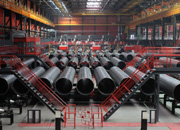 Threeway Steel is known as a professional supplier engaged in manufacturing and distributing a wide range of steel pipe, and our headquarter located the central part of China – Hunan and six associated factories throughout China.
Threeway Steel is known as a professional supplier engaged in manufacturing and distributing a wide range of steel pipe, and our headquarter located the central part of China – Hunan and six associated factories throughout China.
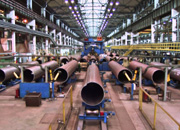 Threeway Steel is known as a professional supplier engaged in designing, manufacturing and distribution of a wide range of steel products with the headquarter located the central part of China – Hunan and six associated factories throughout China.
Threeway Steel is known as a professional supplier engaged in designing, manufacturing and distribution of a wide range of steel products with the headquarter located the central part of China – Hunan and six associated factories throughout China.
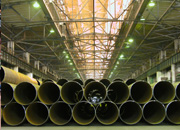 Threeway Steel is known as a professional supplier engaged in designing, manufacturing and distribution of a wide range of steel products with the headquarter located the central part of China – Hunan and six associated factories throughout China.
Threeway Steel is known as a professional supplier engaged in designing, manufacturing and distribution of a wide range of steel products with the headquarter located the central part of China – Hunan and six associated factories throughout China.
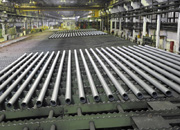 Threeway Steel is known as a professional supplier engaged in designing, manufacturing and distribution of a wide range of steel products with the headquarter located the central part of China – Hunan and six associated factories throughout China.
Threeway Steel is known as a professional supplier engaged in designing, manufacturing and distribution of a wide range of steel products with the headquarter located the central part of China – Hunan and six associated factories throughout China.
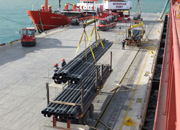 Threeway Steel is known as a professional supplier engaged in designing, manufacturing and distribution of a wide range of steel products with the headquarter located the central part of China – Hunan and six associated factories throughout China.
Threeway Steel is known as a professional supplier engaged in designing, manufacturing and distribution of a wide range of steel products with the headquarter located the central part of China – Hunan and six associated factories throughout China.

